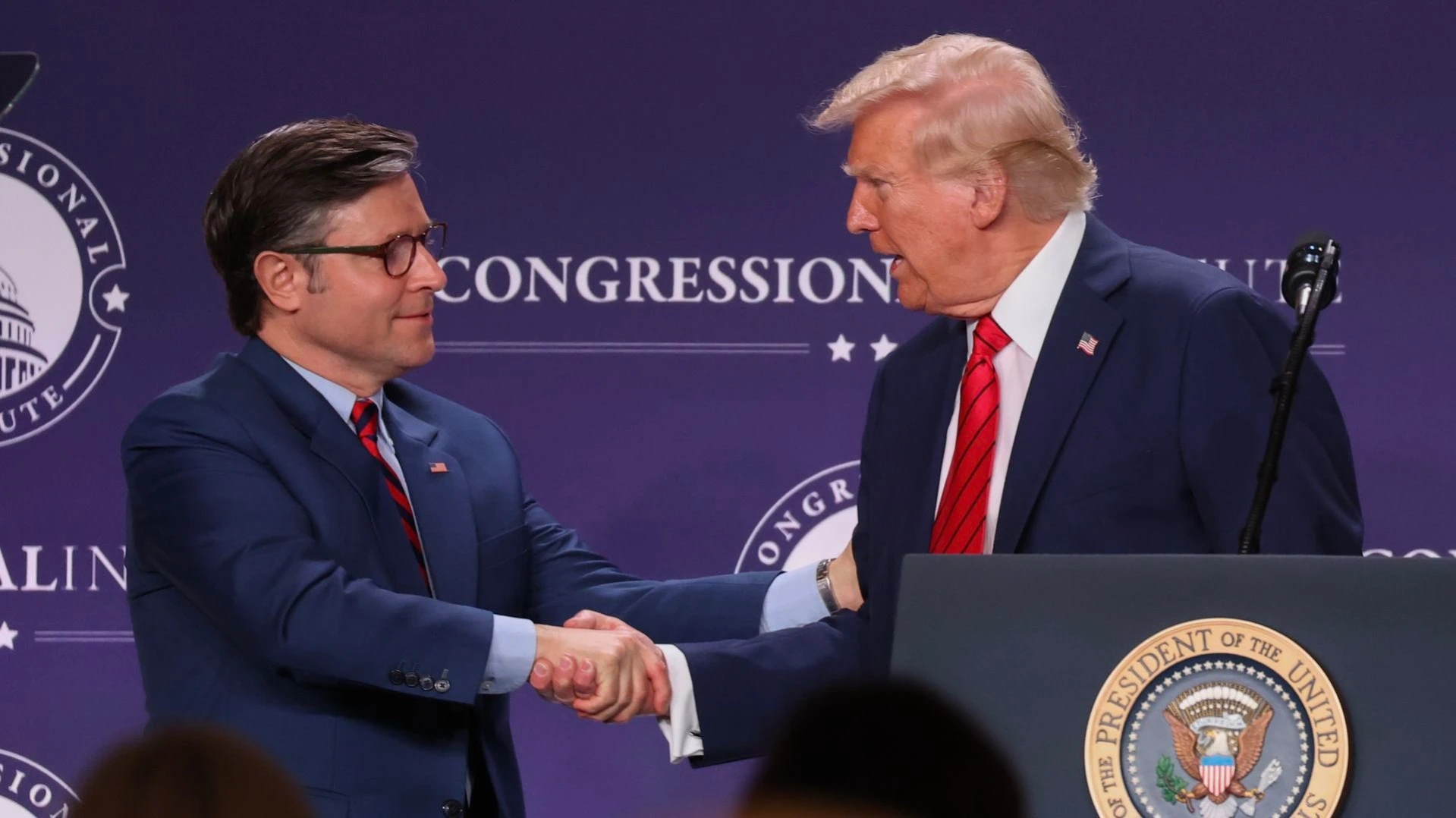Congress approved Trump's "Big and Beautiful" law. Who will win and who will lose?
Trump will sign legislation on U.S. Independence Day on July 4

The House of Representatives, the lowest in the US Congress, passed the "Big and Beautiful Bill" promoted by President Donald Trump. This bill involves increasing the state budget deficit, cutting taxes and canceling a number of tax breaks, including on the purchase of electric cars. The last point was criticized by Tesla CEO Ilon Musk, which became the reason for his public conflict with Trump.
Details
The House vote ended with 218 votes in favor and 214 against, reports Reuters. The bill will now head to Trump. He plans to sign the document on Friday, July 4, White House press secretary Caroline Leavitt said, posted Bloomberg. On that day, the US will celebrate Independence Day.
Earlier this week, the bill was voted on in the upper house of Congress - the Senate. There, 51 votes were cast in favor of it, 50 against. The deciding vote in favor was cast by Vice President J.D. Vance. Trump and his supporters expect that the $4.5 trillion in tax cuts, which the bill provides for, will help spur economic growth, Bloomberg noted.
Investors and wealthy Americans are among the top gainers from the bill, while the top losers include universities and immigrants, wrote Bloomberg.
Who will benefit from the bill
- Fossil Fuel Producers. The coal, oil and gas industries would receive tax breaks and access to new federal lands for drilling, while incentives for competing green energy are phased out.
- Telecommunications. The bill auctions off a huge range of radio spectrum for use in wireless broadband. It's potentially useful for Starlink, the space internet service from Ilon Musk's space company SpaceX, as well as for 5G and 6G mobile networks, Bloomberg writes.
- Defense Contractors. The bill includes a $150 billion increase in defense spending: a significant portion of this amount would go to new weapons systems produced by major players.
- Space. About $10 billion is allocated to finance projects in this sphere, including missions to the Moon and Mars and decommissioning of the International Space Station.
- American auto dealers. They will be eligible for new tax deductions through 2028 on sales of vehicles made in the United States.
- Multimillionaires. The bill would allow them to pass more wealth to heirs and avoid higher taxes. Moreover, the document implies tax cuts totaling $4.5 trillion, Bloomberg cited estimates by the Congressional Joint Committee on Taxation.
And whoever loses
- Electric Vehicle Manufacturers. Tesla, General Motors and other brands will be hit by the elimination of tax credits on electric car purchases of up to $7500 for a new car and up to $4000 for a used car.
- Technology companies. The Senate removed an amendment that prohibited US states from regulating artificial intelligence: a victory for critics of the tech industry and a blow to companies such as Microsoft and Meta, as well as venture capital firms such as Andreessen Horowitz, according to Bloomberg.
- Renewable Energy. Tax credits for solar panels and wind systems will be quickly eliminated, and by the end of the year, incentives for home energy efficiency improvements and the installation of solar panels and other clean energy systems in residential neighborhoods will also be phased out.
Context
In early June, Tesla CEO Ilon Musk called the bill promoted by Trump a "disgusting abomination" that would dramatically increase the federal budget deficit. Musk had previously said the proposed measures would negate the efforts of the Department of Government Efficiency (DOGE), which Musk led until the end of May. Trump then called Musk insane and suggested revoking his companies' government contracts and subsidies. The first phase of the conflict ended with Musk stating that he regretted the posts against Trump.
The quarrel between the world's richest businessman and the US president flared up again at the end of June. Musk after weeks of silence, criticized the "Big and Beautiful" bill again. Trump also renewed his criticism of Musk, accusing the head of Tesla and SpaceX of being overly keen on subsidies from the U.S. budget and threatening to stop government funding. Afterward, Trump vaguely answered when asked about the likelihood of Musk's deportation: "I don't know. We'll have to see," the US president said. He added that Washington may "have to target DOGE for Ilon."
After the first outbreak of conflict between Trump and Musk, Argus analysts expressed concern about that, as well as the expiration of tax credits for electric vehicles. The tension between Trump and Musk adds uncertainty to Tesla's prospects and could intensify questions about damage to the brand, noted then Baird analyst Ben Kallo.
This article was AI-translated and verified by a human editor
